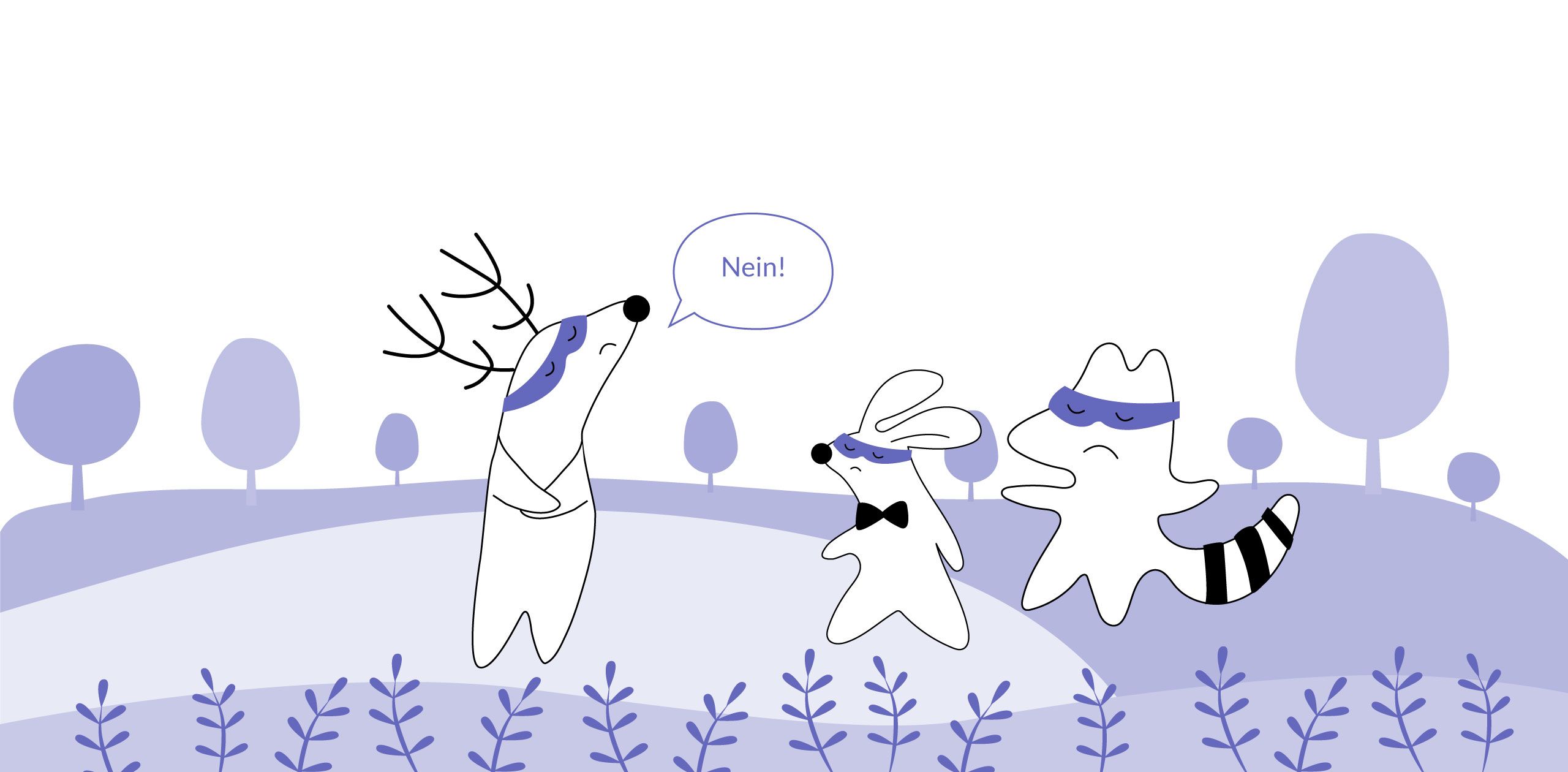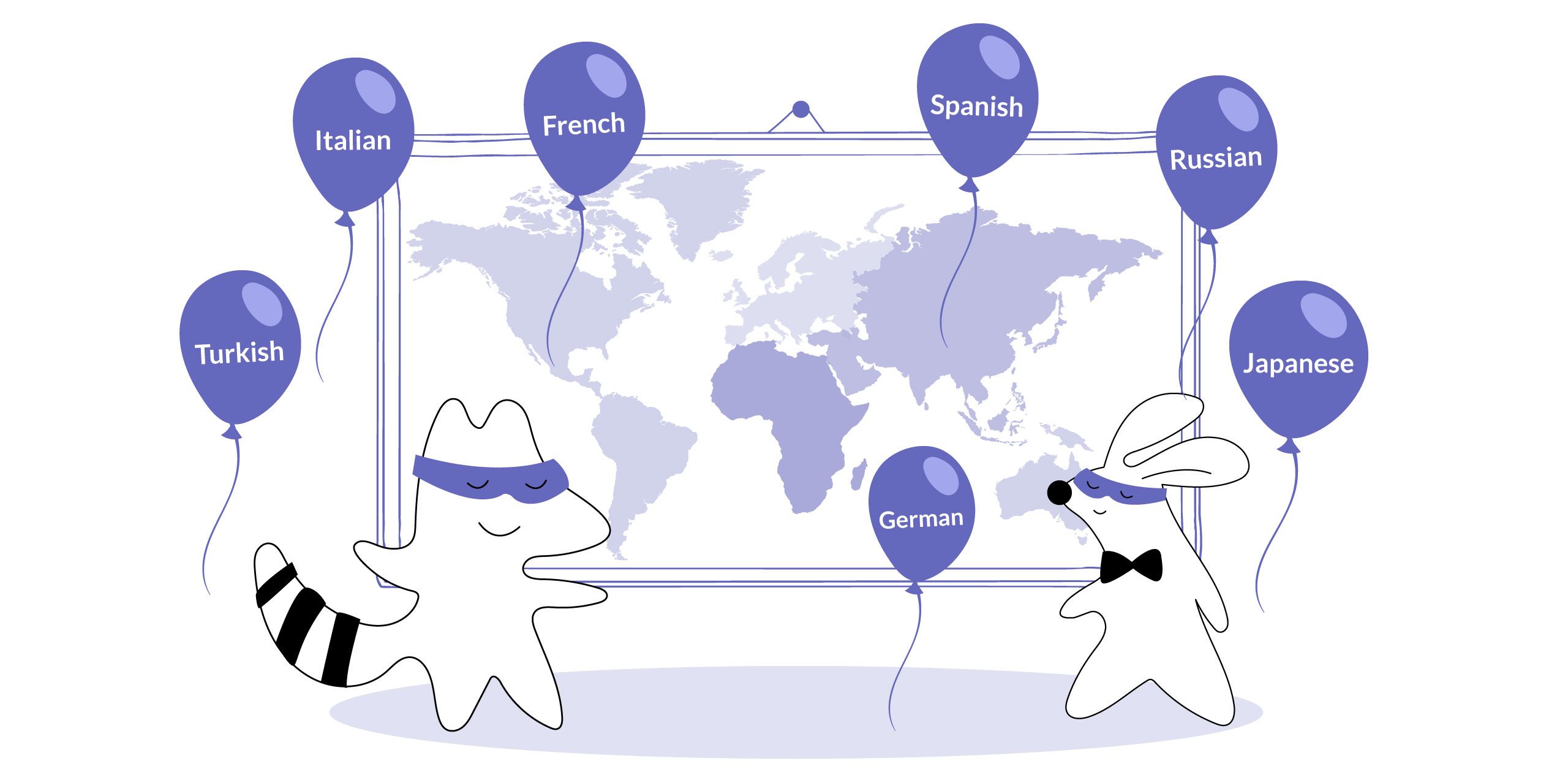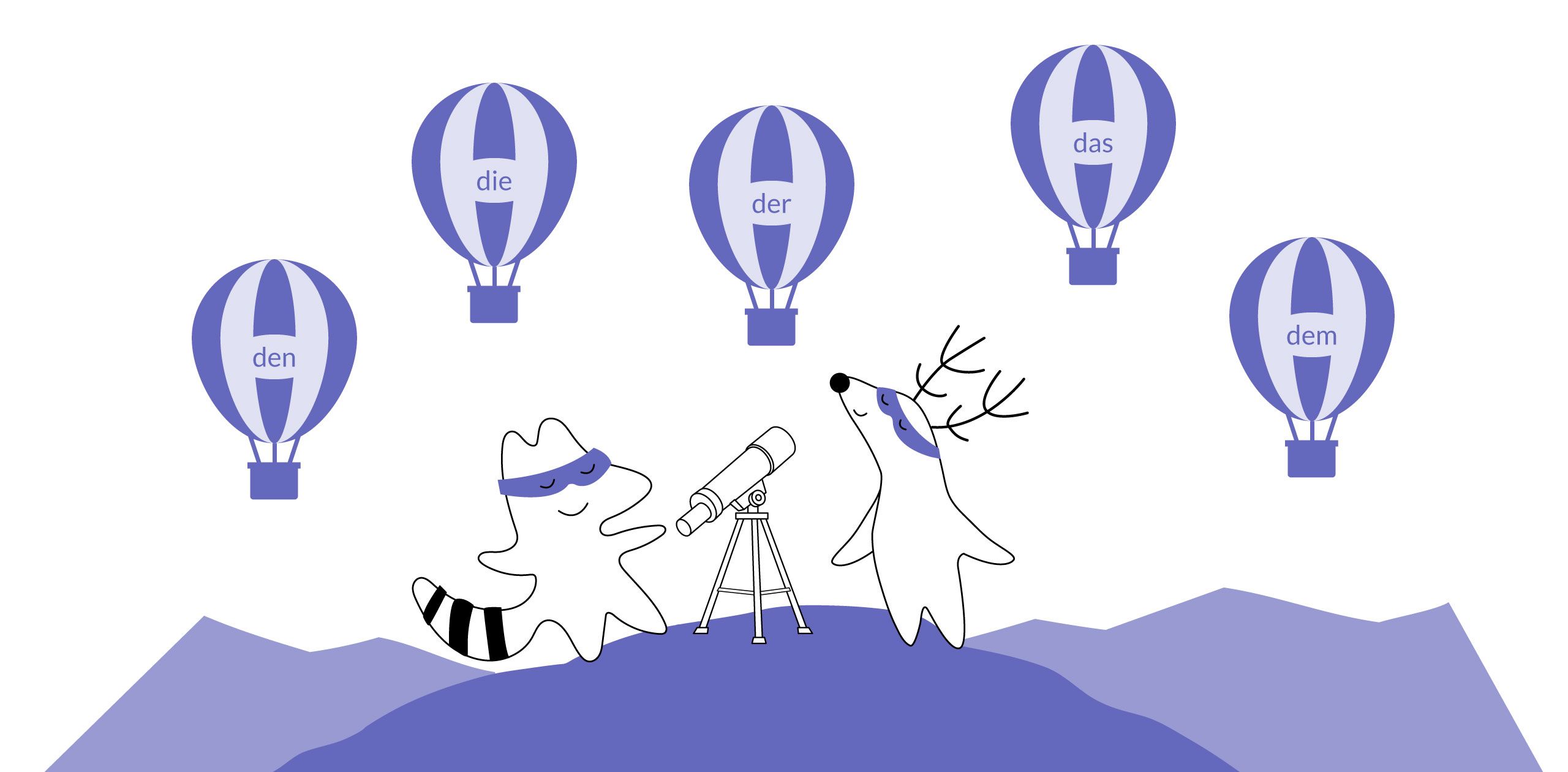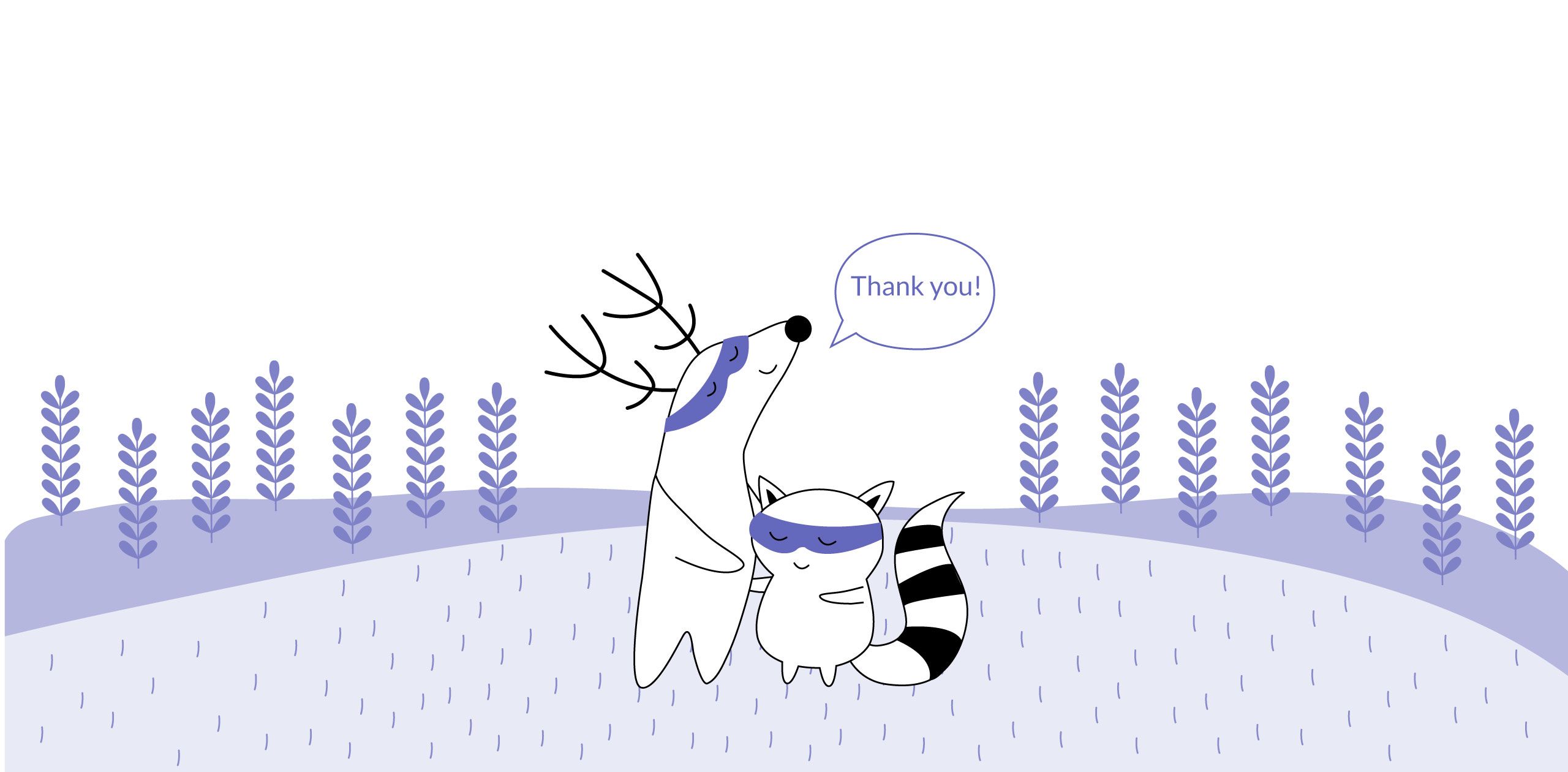
Thanking someone is one of the most important ways to show how grateful you are. In many cases, a "thank you" is appropriate, and in some cases, it is absolutely necessary. Learning how to express your gratitude is one of the first steps to becoming fluent in a foreign language.
German people are known to be polite, and they expect the same from others. As a result, before getting in touch with them, you should learn some basic German language skills for specific situations.
Because Germans place a high value on their word, hearing you say "thank you" can be very important to them - so knowing how to show your gratitude is an important skill you need to acquire if you want to learn German.
This article will show you different ways of saying "thank you" in German and specific situations in which it is appropriate to use them. After reading it, you should be able to behave as politely in German as you do in your own language.
The Famous German Word "Danke"
After arriving in Germany, you will hear one word in particular over and over again, and that is "danke." It is the equivalent to the English "thanks," and derives from its more extended versions "danke schön" and "danke sehr."
Native
Translation
Danke
Thanks
Literally, "danke schön" could be translated to English as "thank you nicely," and "danke sehr" as "thank you a lot." As a result, there is no significant difference in their usage, and German people use them randomly when they don’t want to say the short "thanks."
Native
Translation
Danke schön
Thank you nicely
Danke sehr
Thank you a lot
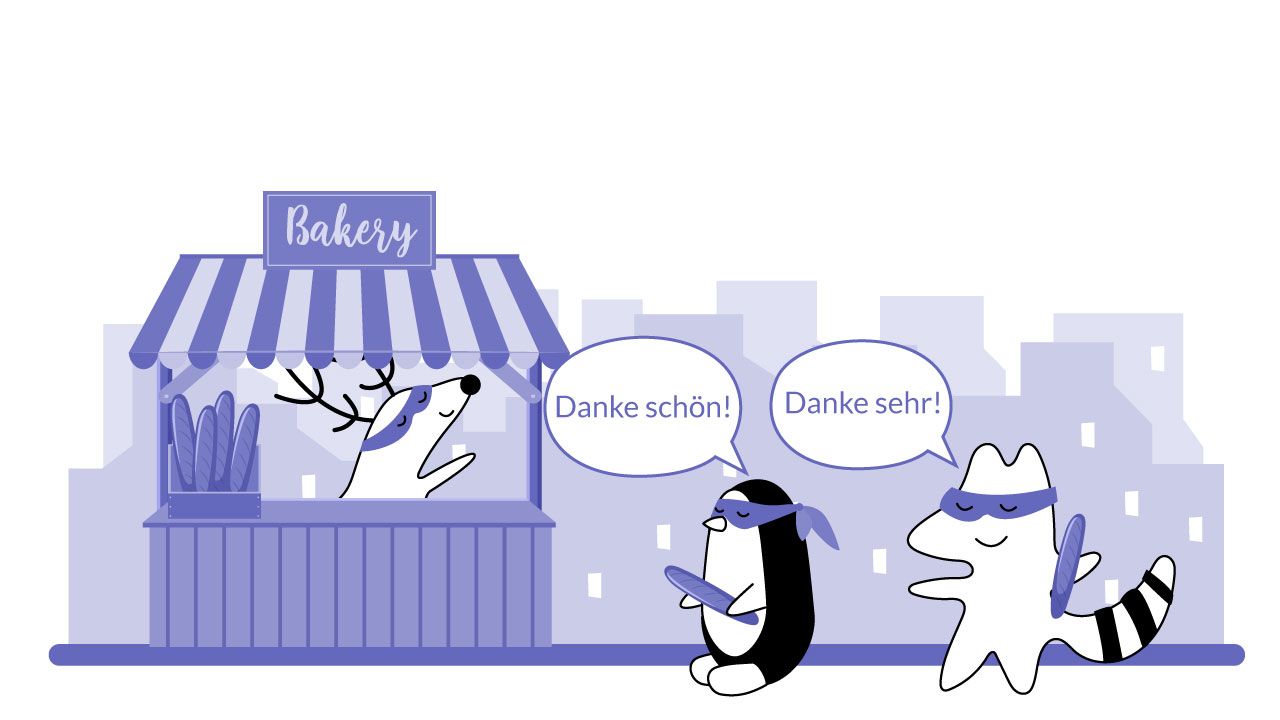
When to Say "Danke" in Germany
So we know that saying "danke" is the most common way in the German language to show your gratitude to other people. Now we will have a look at when the Germans use it.
The basic situation to say “thank you” in most cultures is when you are receiving something. In France, you say "merci" when the baker hands you your croissant in the morning, and in Spain, you say "gracias" when the waiter serves you tortilla de papas. So when you get your first beer in Germany, say "danke!"
If the situation is more personal, there is a way to refer the "thank you" to a person directly. Imagine that someone showed you the way to the Kölner Dom because you got lost in the city. Before saying goodbye, you can say "Ich danke dir" (I thank you), where you emphasize the "you."
Native
Translation
Ich danke dir
I thank you
To express this more personal "thank you" in a formal way - for example, when talking to a person you might not know, you have to change the word "dir" into "ihnen." Thanking an older lady for explaining to you the way to the center would be "Ich danke Ihnen" in German.
Native
Translation
Ich danke Ihnen
Thank you (formal)
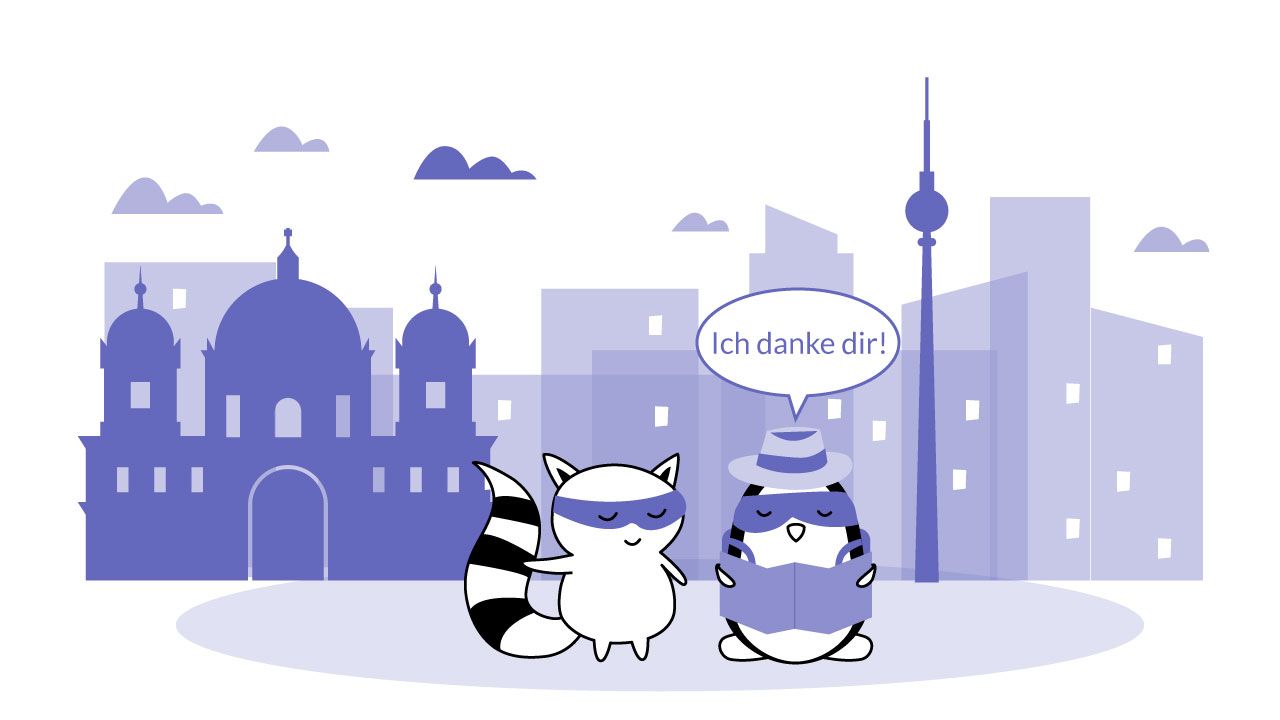
How to Express Intense Gratitude
If somebody did you a big favor and you feel so overwhelmed that a simple "danke schön" is not enough to express your gratitude, there are a few more options.
To begin with, looking into the eyes of the other person while saying “thank you” should help because as you might know, "eyes don't lie." Besides, looking into the eyes of another person in Germany is a sign of respect and honesty, so make eye contact whenever you say "thank you."
Now, if you feel that a simple "danke sehr" does not express your feelings, you have many other options to use. Just like English speakers have their different ways to show gratitude, Germans have theirs:
Native
Translation
Besten Dank
Thank you very much
Danke dir vielmals
Many thanks to you
Vielen Dank für Alles
Thank you for everything
Tausend Dank
Thousand thanks / thanks a million
Ich danke Dir von ganzem Herzen
I thank you with all my heart
Herzlichen Dank
Heartfelt thanks
Freundlichen Dank
Thank you kindly
Germans primarily use the last two options in the written language - for example, in letters or gift cards.
How to Say "Thanks in Advance"
There might be situations in which you want to ask somebody for a favor. If you know that the other person probably will help and you want to express how grateful you would be for that, you can say "thank you" in advance.
The most common phrase Germans use for that is "danke im voraus" (thanks in advance). It is commonly used in correspondence - for example, to thank someone for the response in advance.
Native
Translation
Danke im voraus
Thanks in advance
How to Specify Your "Thanks"
Sometimes, when you thank someone for something, they might not remember what you are talking about. In that case, you can say, "thanks for helping me out yesterday."
The phrase works with the same structure in the German language as it does in English, but instead of "for," you use the word "für" and add nouns instead of verbs. You would say, "danke für deine Hilfe" (thanks for your help), or "danke für das Brot" (thanks for the bread).
Native
Translation
Danke für deine Hilfe
Thanks for your help
As we already discussed above, to refer to a person formally, you have to use the pronoun "Ihre." Saying "thank you for your help" to a stranger would then be "danke für Ihre Hilfe" or "Ich danke Ihnen für Ihre Hilfe," if you want to challenge yourself with the long version.
Native
Translation
Danke für Ihre Hilfe
Thank you for your help (formal)
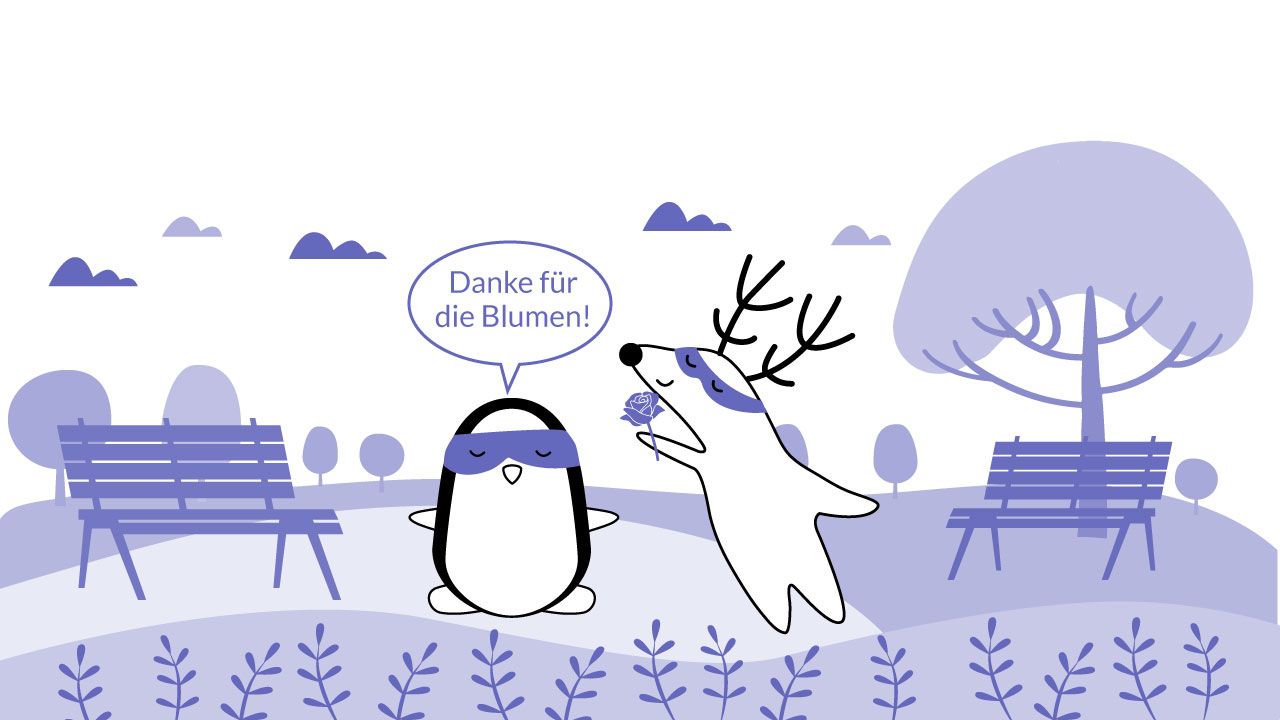
How to Respond to a "Thank You" in German
Of course, there can also be situations when people will say "thanks" in German to you. In that case, you will have several phrases to answer with, so let's have a quick look at them.
The usual answer to a "thank you" is "you're welcome." In Germany, people will look at you and say, "bitte sehr" or "bitte schön." The expression "gern geschehen" is also very common. It literally means "I gladly did," and Germans sometimes use the short form "gern."
These are the most common ways to say "you're welcome" in German:
Native
Translation
Bitte sehr
You're welcome
Bitte schön
You're welcome
Gern geschehen
I gladly did / gladly
If you do not mind helping the other person and want to say something like "no worries" in German, you can say "keine ursache." You will probably also hear the phrases like "nichts zu danken" (Nothing to thank for) or "kein problem" (no problem).
Native
Translation
Keine ursache
No worries
Nichts zu danken
Nothing to thank for
Kein problem
No problem
There might also be the situation that people say "thanks" to you, and you want to thank them too. In this case, in German you have the proper expression, "danke gleichfalls" (thank you too).
Native
Translation
Danke gleichfalls
Thank you too
Alternative Ways of Saying "Thank You"
Sometimes you might not have the chance to express your gratitude by saying "Thank you very much" in person. Don't worry - there are other beautiful options to let somebody know how thankful you are. After all, language learning is not just about the words, but also about getting familiar with the culture.
In Germany, people mostly use little presents when they don't have the chance to say "danke schön" while looking into the other's eyes. They often send flowers, chocolate, or vouchers to the person's home or give them to them through somebody else.
A nice photo as a memory of the moment or a letter also has a bit of charm and is often used to express gratitude. Or, if you want to put more energy into your “thank you”, you might invite the other person to dinner or cook for them. Taking time for somebody is a unique way to express gratitude.
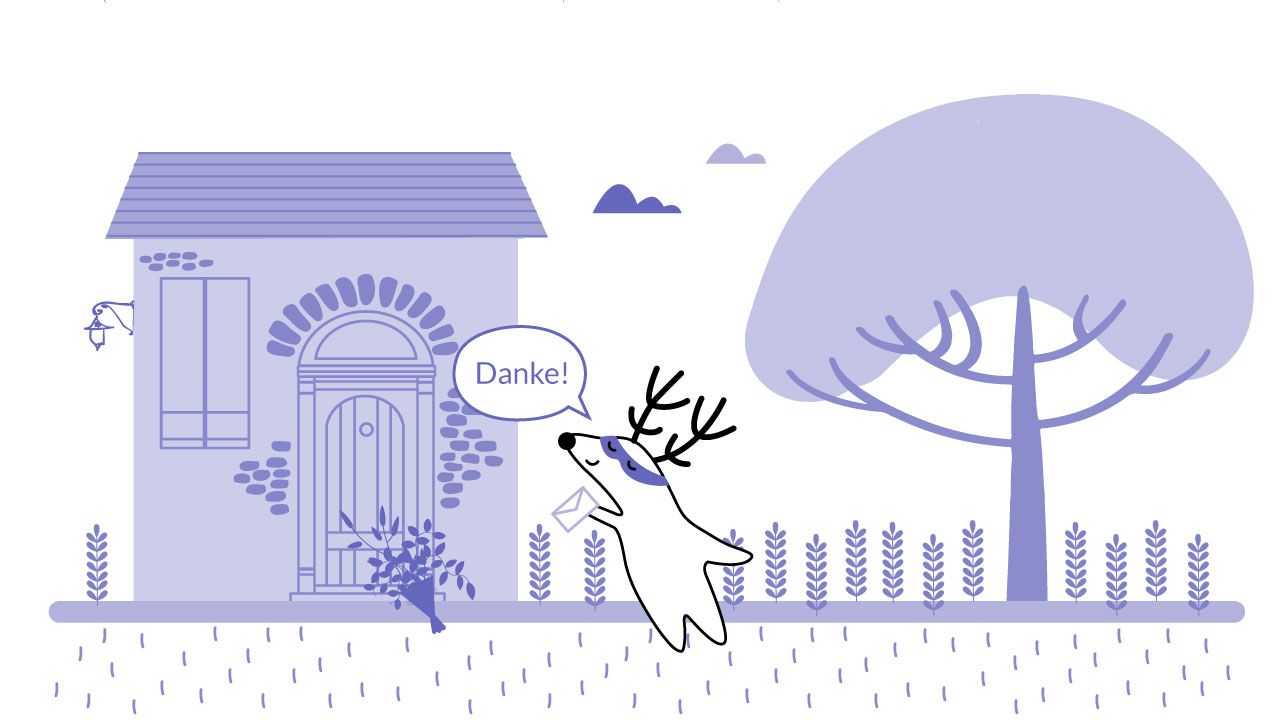
A Quick Summary: How to Show Gratitude in Germany
There are different ways to say "thanks" in German, and they’re all great ways to express gratitude. The good thing is that you feel gratitude and want to express it in many different situations.
Germans like polite people and to them, saying "thank you" is an act of respect. So, if you are unsure whether to say "danke" or not, just do it - it is better to say it too often than not often enough.
Remember to make eye contact with the person you want to thank, as it makes your expression of gratitude honest and sincere. If you don't have the chance to thank them personally, think of a friendly alternative like a small present or a favor.
What to Say in German
The short way to say "thank you" in German is "danke," but you can also say "danke sehr" or "danke schön." If you want to show that you are very thankful, use "vielen Dank," "tausend Dank," or one of the options we gave you above.
Make it more personal by adding a pronoun, saying "danke dir" or "Ich danke Ihnen" if it has to be formal.
To say "you're welcome," use the phrases "gern geschehen" or "kein problem," and if you want to respond to a "thank you" with a "thank you too," say "danke gleichfalls."
We hope you are already looking forward to applying your new German language skills in situations full of gratitude and wish you lots of beautiful moments giving and receiving favors.







